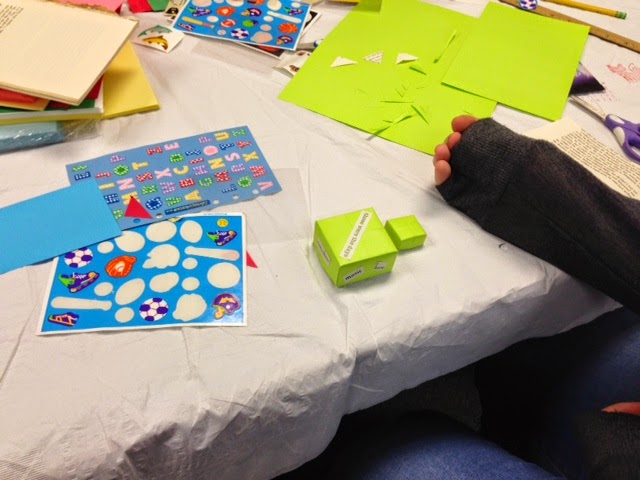On a beautiful Fall day, librarians from around the state of Pennsylvania convened at Toftrees Conference Center in State College Pennsylvania to discuss the provisions for librarians in the Every Student Succeeds Act. Lead by Laura Hicks, the Region 2 Director of the American Association of School Librarians board, we reviewed the definition of an effective school library program before exploring the specific federal guidelines and state interpretations of these guidelines. We ended the workshop by discussing ways in which we can apply what we have learned to our own school libraries.

The AASL definition of an effective school library program pulls from two important phrases present in the Every Student Succeeds Act language, including that libraries provide "personalized learning environments" to ensure a"well-rounded" education. Additionally, AASL outlines how the school library program is essential to "college, career and community readiness," including that the library is staffed with a certified school librarian, it has current digital and print resources, and it provides staff development and collaboration opportunities. Furthermore, AASL offers the qualifications that a school librarian should possess, including being "instructional leaders," supporters of multiple literacies (digital and information, among others), and elevators of reading initiatives. More information and precise verbiage can be found on the AASL Position Statements page:
http://essa.aasl.org/aasl-position-statements.
Following the definition of an effective program, with the help of video messages from the American Library Association Executive Director of Washington Office Emily Sheketoff, we explored each part of ESSA that pertains to developing and maintaining effective school library programs.
Title I of ESSA ensures that state and local agencies improve basic programs. Ms. Hicks urged us to consider what we are already doing, as school librarians, to improve digital literacy for our students. What can we do to impact student learning? Schools need librarians and access to effective school library programs in order to impact student achievement.
In Title II, ESSA advocates for supporting effective instruction. School librarians often lead their own professional development workshops or in-service day sessions after attending conferences and workshops. Because entire districts benefit from school librarian attendance at conferences and workshops, Title II Part A funds can be used for the librarian to attend professional development opportunities. Additionally, Literacy Education for All, Results for the Nation (or LEARN), specifies that school librarians can participate in required grant activities. According to Sheketoff, these grants can be used for teachers and school librarians to meet and collaborate on literacy initiatives. Innovative Approaches to Literacy (IAL) specifically states that funds should be used for supporting effective school library programs. Ultimately, school librarians can aide in applying for grants, and they need to research and make sure that the district grant writer is aware of important school grants that can help in enhancing library programs.
Title IV, Part A discusses Student Support and Academic Enrichment Grants, otherwise known as Block Grants. ESSA essentially authorizes school librarians to learn about technology, as librarians offer "access to personalized, rigorous learning experiences supported by technology." Therefore, librarians should be afforded the opportunities to update technology skills and provide technology for their students.
The session ended with discussion on how to apply all of these elements to our own libraries. We were encouraged to develop short speeches that could quickly and spontaneously help others see the importance of school libraries and librarians.

Allison Burrel, President of the Pennsylvania School Librarians Association, also directed us to take a look at the new ESSA recommendations developed for the state of Pennsylvania specifically:
http://www.education.pa.gov/Documents/About%20PDE/ESSA/October%2018,%202016/AIR%20Report%20PA%20ESSA%2010%2014%2016.pdf. Further information about the Every Student Succeeds Act can be found on the PA Department of Education website:
http://www.education.pa.gov/Pages/Every-Student-Succeeds-Act.aspx#tab-1. A compilation of resources and advocacy tools can be found on the ESSA and School Libraries website:
http://essa.aasl.org.
Ultimately, librarians must stay abreast of new legislation that provides effective school library provisions. We can remain hopeful that the federal government, state, and local agencies recognize the importance of school libraries to student achievement. But we must still continue to advocate for all that school libraries can do to support digital and print literacy, technology skills, teacher professional development, and overall school culture. Our students depend on it.
Work Cited
American Association of School Librarians.
Connecting ESSA to School Librarians. 25 Oct. 2016.


































